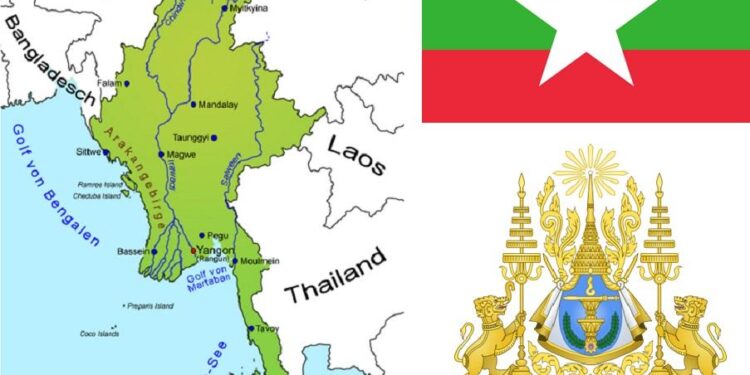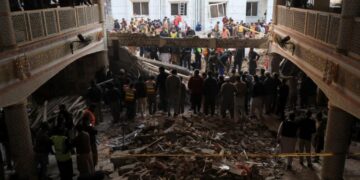Myanmar’s Military Regime Prolongs Emergency Rule Amid Escalating Conflict
In a critical move amid ongoing unrest, Myanmar’s military leadership has declared an extension of its emergency governance as violence and political instability surge across the country. Since the military coup in February 2021, tensions have intensified with various groups opposing the junta’s control. This extension, reported by Reuters, underscores growing concerns about widespread human rights abuses and diminishing hopes for democratic restoration. While the military justifies these measures on grounds of national security, critics warn that such actions deepen authoritarian rule and suppress civil liberties.
Expansion of Military Authority in Response to Rising Unrest
The Myanmar military government has reinforced its emergency powers to address increasing nationwide turmoil. Citing threats to public safety and order, the regime has implemented stricter controls aimed at quelling dissent and consolidating power. The escalation includes heightened confrontations between security forces and protestors or armed resistance groups, fueling fears among civilians about potential crackdowns.
Key components of this extended emergency framework include:
- Augmented troop deployments: Security personnel have been stationed extensively across volatile regions to enforce curfews and deter demonstrations.
- Intensified digital surveillance: Authorities are expanding monitoring efforts over telecommunications and social media platforms to identify opposition activities.
- Tightened media restrictions: Independent journalism faces severe limitations as state-controlled outlets operate under strict censorship policies.
- Detaintion of political dissidents: Prominent activists and opposition leaders continue to be arrested or silenced under broad charges related to national security.
This consolidation raises alarm bells regarding Myanmar’s democratic future. International watchdogs highlight that such prolonged emergency rule risks entrenching authoritarianism while exacerbating humanitarian crises within the country.
The Broader Regional Fallout from Myanmar’s Prolonged Crisis
The continuation of military dominance in Myanmar reverberates beyond its borders, influencing geopolitical stability throughout Southeast Asia. Neighboring nations like Thailand, India, Bangladesh, and China face mounting challenges due to increased refugee flows escaping conflict zones—placing additional pressure on border management systems already strained by global migration trends.
This instability also threatens regional economic networks; sectors reliant on Myanmar’s agricultural exports—such as rice production—and textile manufacturing are experiencing disruptions due to internal conflict-related supply chain breakdowns. According to recent trade data from ASEAN reports (2024), exports from Myanmar have declined by approximately 25% compared with pre-coup levels—a trend expected to impact regional markets significantly if unrest persists.
| Affected Area | Expected Consequences |
|---|---|
| Migrant Influx | Sustained humanitarian demands on neighboring countries’ resources |
| Erosion of Trade Flows | Diminished export volumes impacting regional economies dependent on Burmese goods |
| Bilateral Security Concerns | Tightened border controls amid fears over cross-border insurgency spillover and arms trafficking activities |
A Call for Enhanced Global Diplomacy & Humanitarian Support Efforts
The deteriorating conditions inside Myanmar necessitate urgent international engagement combining diplomatic pressure with expanded humanitarian aid initiatives. The junta’s firm grip coupled with escalating armed conflicts has led millions into displacement while worsening access shortages for essential services like healthcare and food supplies.
An effective response requires coordinated action focusing on several priorities:
- Sustained Humanitarian Relief: Scaling up delivery of nutrition programs, medical care kits including COVID-19 vaccines where feasible, clean water provision initiatives along displacement corridors;
- Diplomatic Collaboration: Strengthening dialogue channels through ASEAN frameworks alongside UN mediation efforts aimed at fostering ceasefires or peace negotiations;
- Civil Society Empowerment: Pledging support toward grassroots organizations providing frontline assistance while advocating for human rights protections amidst repression;
| Crisis Needs Category | Status Of Aid Coverage (2024) |
|---|















